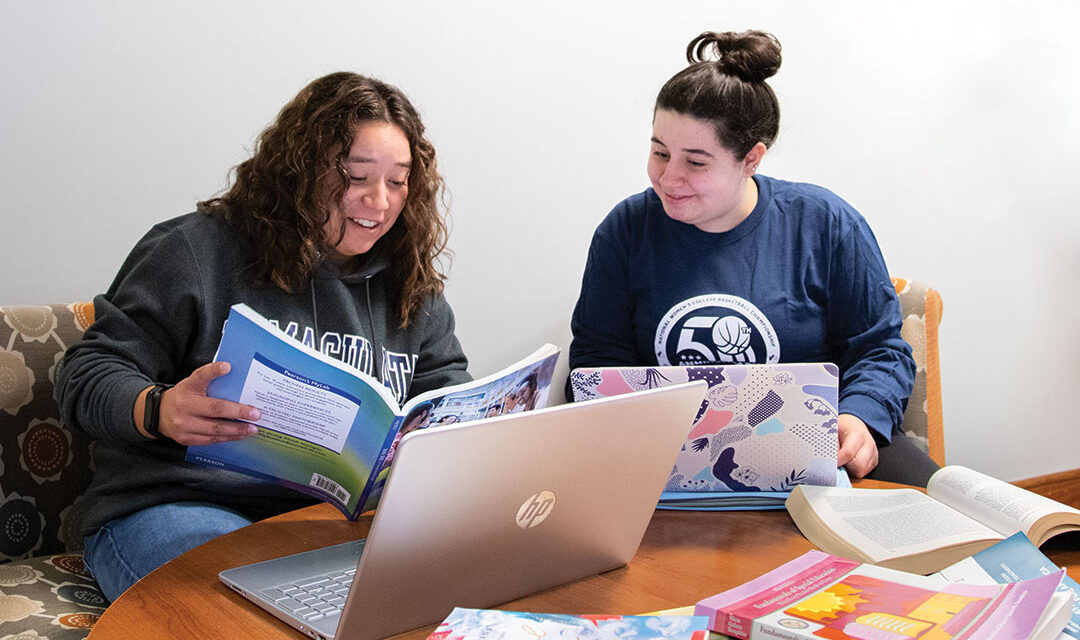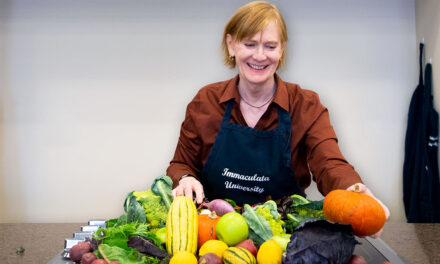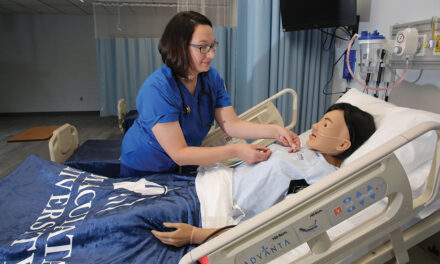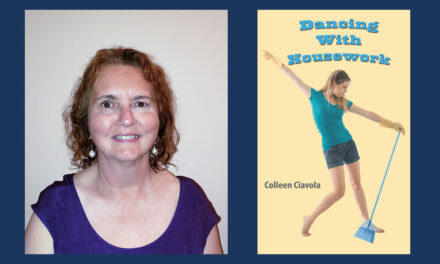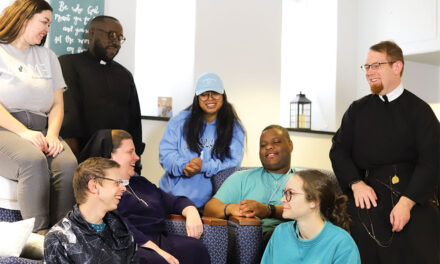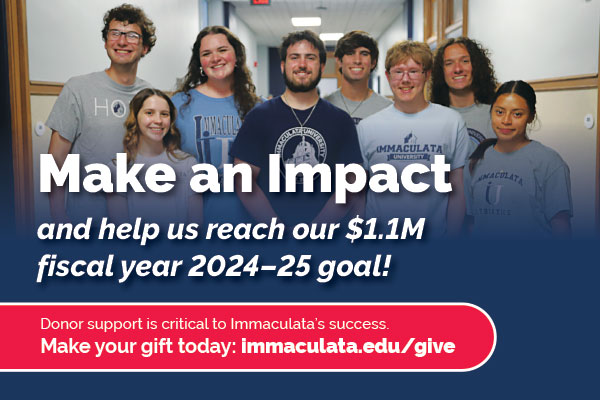Nursing major Leela Tso ’25 has the right idea—seek help before you need it. When she was two points shy of passing her Nursing Concepts class, she was required to retake it. This time, she requested a peer tutor through Immaculata’s Learning Support Services (LSS) and was assigned to Julia Darlak ’24, who is also a nursing major. The students meet for one-hour tutoring sessions where Darlak identifies the best way to present ideas and concepts so Tso can understand them.
Tso finds it helpful when Darlak explains something to her and then asks her to explain it in her own words. They also do practice exams, so Tso is prepared for the real thing. So far, peer tutoring is making a significant impact on Tso.
“The next day in class, I have better confidence—‘I know this because Julia showed me,’” Tso stated.
The LSS department provides curriculum-based support for students. Each area within LSS has its own function, but they all work together to support students. Besides peer tutoring, students can utilize the writing and math centers, receive academic coaching, and seek academic accommodations through the disability services office—all housed within the LSS department, which employs a total staff of 10 full- and part-time workers. Jennifer Peruso is the executive director of LSS and also serves as the disability services officer. This position oversees the complexities of disability services that ensure equal access and provide reasonable accommodations for qualified students with disabilities.
%
Increase in Student Requests for Academic Accommodations
Peruso has noticed a rise in the needs of students requesting learning support. Although the increase began before COVID-19 hit, she attributes a portion of it to the effect of the pandemic lockdown that left many high school students less prepared for college. With an increased need, the University secured a larger space for LSS, including an expanded area for testing accommodations and peer tutoring.
Additionally, Peruso is seeing an increase in students requiring academic accommodations. During the spring 2022 semester at Immaculata, the LSS staff processed 149 student requests for academic accommodations, which was 86% higher than 2020.
Nicole McGhee ’25 has dyslexia, so she applied for accommodations, including more time to take her exams in the quiet, undistracted environment of the LSS Testing Center. In the past, she took exams in the classroom, which was more stressful for her.
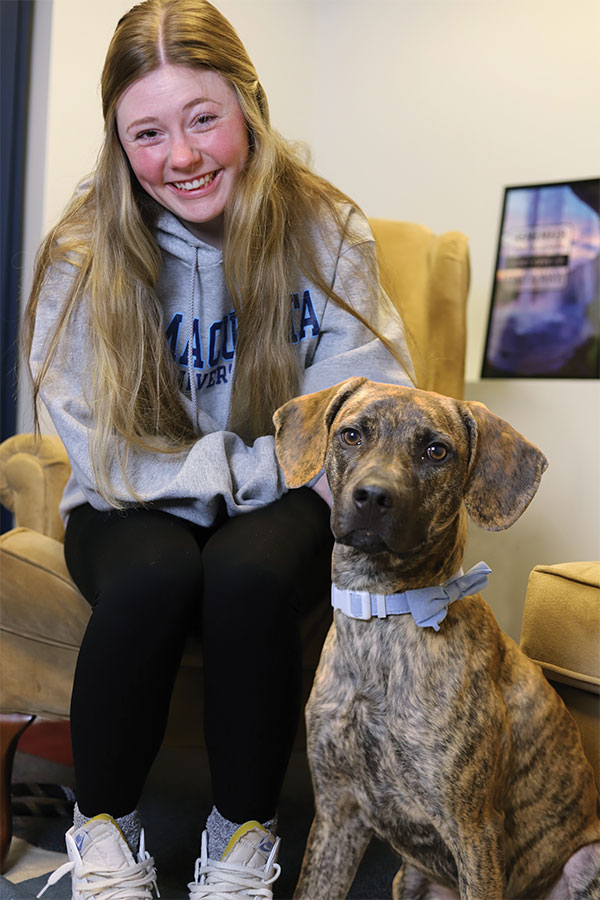
Abby Reese ’25 with dog Murphy.
Any student who needs help with math or writing can use the math and writing centers, which provide student and faculty tutors who work with students on these two core academic subjects. Sessions are offered in one-on-one meetings, asynchronously or online. The goal is to offer a supportive learning environment to help reduce anxiety surrounding math or writing so students become confident and independent learners.
Some of the support that students may need involves time management, organization and planning skills, and deciphering class assignments. Students struggling in these areas can sign up for academic coaching, which is conducted by the staff of academic advising and LSS.
Disability services staff members frequently work in concert with other departments and the faculty. Peruso recently assisted a nursing student with a latex allergy who was concerned about gloves in the nursing and science labs. She reached out to the nursing faculty to determine what alternatives were available to the student and learned that Immaculata is latex-free. She also works with dining services to coordinate meal plans for students with food allergies or dietary restrictions, and with the staff from residence life and housing to help students who may need accommodations in their living arrangements such as a specific room location due to mobility or other needs. Additionally, students can request an emotional support animal to help them cope with many daily issues and concerns. Last semester, three dogs and two cats served as emotional support animals for students on campus.
Peruso and her staff want students to feel safe and supported when reaching out to them. “Our goal is to help them become independent learners,” she said. “To quote one of our favorite taglines, ‘If we get them through the door, we got it from there.’”
According to Tso, more students should take advantage of the resources available. “Students shouldn’t wait to get help when they’re failing,” she pointed out. “Be proactive and ask for help.”
Learning Support Services
Recently, LSS moved to a larger space that functions as a multi-use learning support space that includes the testing center, peer tutoring center and general learning support space.

